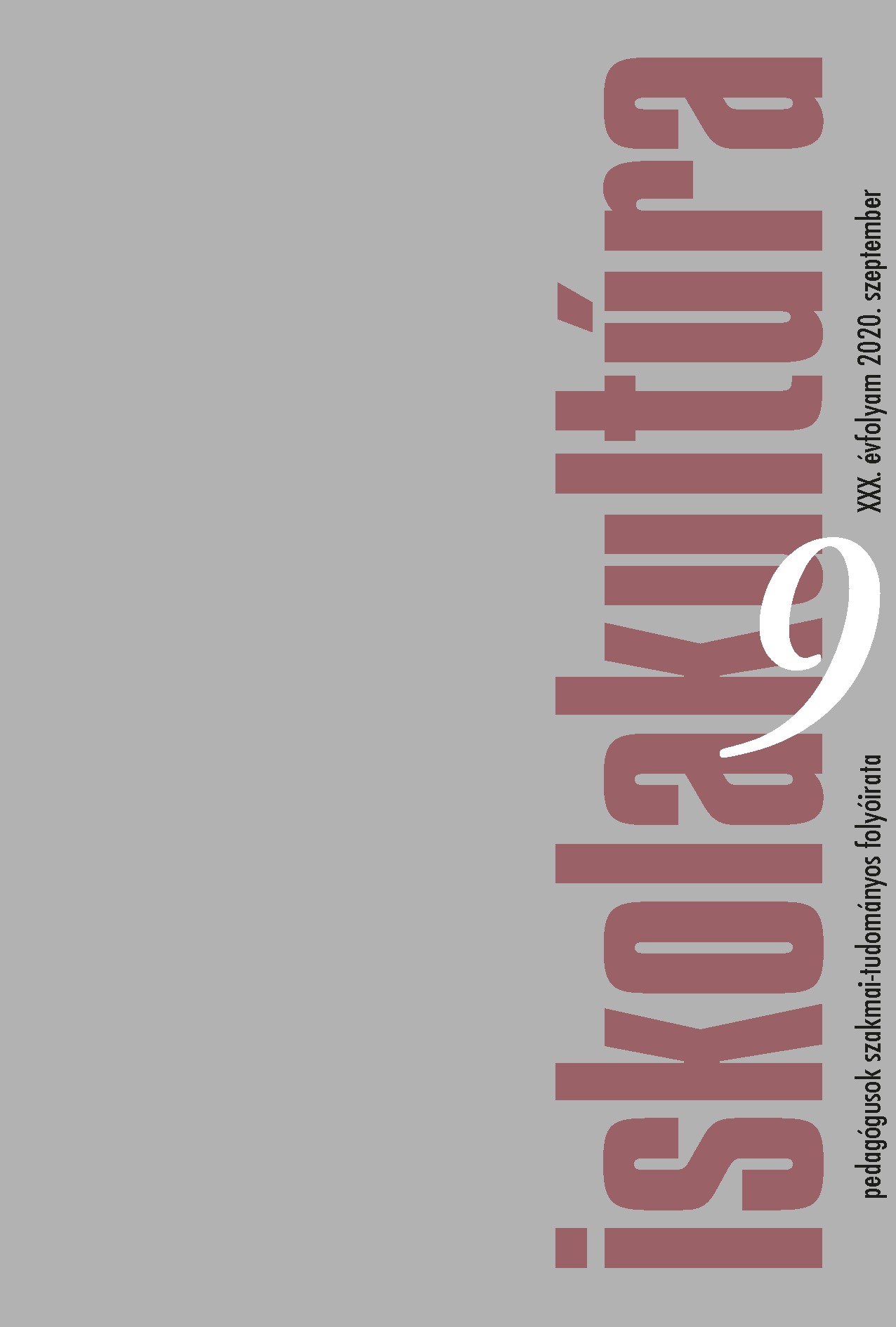Digital changeover − the experience of the first week
Main Article Content
Abstract
Due to corona virus pandemics, in numerous countries of the world schools closed for a while, digital education and distance learning was introduced in order to reduce the danger of infection. The extent of the adaptation to the new education system for schools, teachers and pupils depends on the features of the given country’s education system, the proportion of GDP spent on education, the degree of the digitization in the given country, the availability of IT devices for teachers and students, how competent teachers and students are in terms of possessing computer skills, and what their issue-related attitude and motivation is. In this study, I attempt to map the opinions of teachers, students and parents appearing in social media about the lately and quite quickly introduced, “forced” digital education in Hungary. Also, I endeavour to describe the emerging patterns and to observe problems with sentiment analysis.
Downloads
Article Details
References
Csapó Benő, Fejes József Balázs, Kinyó László & Tóth Edit (2014). Az iskolai teljesítmények alakulása Magyarországon nemzetközi összehasonlításban. In: Kolosi Tamás – Tóth István György (szerk.), Társadalmi riport 2014. Budapest: TÁRKI.110-139.
Dawkins, R. (1976). The Selfish Gene. New York: Oxford University Press.
Ercse Krisztina (2018). Az állam által ösztönzött, egyházasszisztált szegregáció mechanizmusa. In: (Fejes József Balázs & Szűcs Norbert (szerk.), Én vétkem. Helyzetkép az oktatási szegregációról. Szeged: Motiváció Oktatási Egyesület. 177-201.
Ercse Krisztina & Radó Péter (2019). A magyar közoktatásban zajló privatizáció és annak hatásai. Iskolakultúra, 29(7) 8-49. doi:10.14232/ISKKULT.2019.7.8.
Fejes József Balázs & Szűcs Norbert (2018, szerk.). Az oktatási integráció ügye a 2010-es évek végén. In: Fejes József Balázs & Szűcs Norbert (szerk.), Én vétkem. Helyzetkép az oktatási szegregációról. Szeged: Motiváció Oktatási Egyesület. 11-31.
Fekete Marianna (2018). eIdő, avagy a szabadidő behálózása. Generációs kultúrafogyasztás a digitális korban. Szeged: Belvedere.
Lannert Judit (2006). Az iskolaeredményességi kutatások nemzetközi tapasztalatai. In: Lannert Judit & Nagy Mária (szerk.), Eredményes iskola. Adatok és esetek. Budapest: OKI. 17-42.
Lannert Judit (2018). Nem gyermeknek való vidék. A magyar oktatás és a 21. századi kihívások. In: Kolosi Tamás & Tóth István György (szerk.), Társadalmi riport 2018. Budapest: TÁRKI. 267-285.
Prensky, M. (2001). Digital Natives, Digital Immigrants. In: From On the Horizon. MCB University Press. Vol.9. (5). http://www.marcprensky.com/writing/Prensky%20-%20Digital%20Natives,%20Digital%20Immigrants%20-%20Part1.pdf
Pukánszky Béla - Németh András (1996). Neveléstörténet. Budapest: Nemzeti Tankönyvkiadó Rt.
Radó Péter (2018). A közoktatás szelektivitása, mint a roma szegregáció általános kontextusa. In: Fejes József Balázs & Szűcs Norbert (szerk.), Én vétkem. Helyzetkép az oktatási szegregációról. Szeged: Motiváció Oktatási Egyesület. 31-57.
Sáska Géza (2013). Centralizáció, decentralizáció, demokrácia. Educatio. 2013(1), 3-22.
Székely Levente (2013). Média multitasking. Az új generációk megváltozó médiafogyasztási és kommunikációs szokásairól. PhD értekezés. http://phd.lib.uni-corvinus.hu/766/1/Szekely_Levente.pdf (letöltés: 2015.01.10.)
Széll Krisztián (2014). Az oktatási eredményesség iskolai vetületei. Educatio, 23(2). 336–343.

